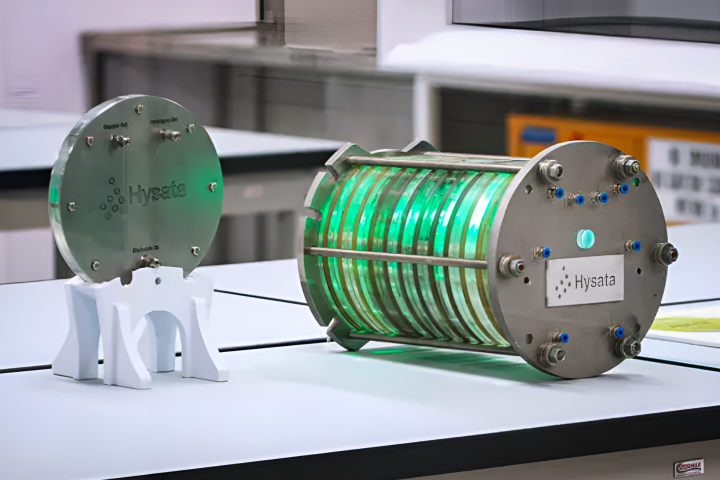Reaching far beyond the cutesy paper sculptures of grade school, the age-old art of origami has underpinned some cutting-edge breakthroughs in design and engineering. From space dwellings, to watercraft, to water bottles, to camping furniture, origami techniques have been called upon to create hardware that packs up tiny and performs on demand. Utah startup Sego Innovations now uses it to create the most packable solar charger around, with a standalone panel that packs down to an eighth of its size within about a second. Slide it in a backpack or suitcase and carry renewable off-grid power anywhere.
NASA, in particular, has used origami to rather impressive effect, applying it to a wide array of projects spanning everything from James Webb mirrors, to small, deployable robots, to massive telescope star shades. In 2013, the American space agency partnered up with researchers at Brigham Young University on the design of a rocket-mounted solar panel that could compact down for launch and expand to 10 times its original size once in space. BYU's continued compliant mechanism research has since spawned other designs, including a bulletproof safety shield for law enforcement that made its way to market.
Sego was founded by a trio of BYU grads with experience working on that very NASA compliant mechanism solar panel project, and it's determined to bring the space-saving design down to Earth in the form of an easy-carry portable charger for travel, adventure, emergency backup and off-grid living. The launch model will feature an array of SunPower monocrystalline solar cells that provides 25 watts of charging in optimal sun conditions. The panels are precisely cut into triangular halves and quarters, then reconnected with printed circuit board (PCB).

The Sego panel is designed to carry as a 7.5-in (19-cm) square that's just over an inch (2.5 cm) thick, unfurling with a simple two-handed pull into a thin, hexagonal panel. It offers 2.56 square feet (0.24 sq m) of surface area when expanded.
Sego protects the solar cells with an ETFE coating for IP67 weather-resistant performance and backs them with a high-pressure fiberglass laminate substrate to create a durable structure ready for travel and outdoor use. A series of joints, hinges and magnets works to ensure seamless folding and setup.
The Sego panel works with a kickstand that stashes inside the folded panel for transport. Note that the two-legged stand Sego is advertising on its Kickstarter campaign is different and simpler than the tripod it shows in the photos.

The back of the Sego panel features a charger module with a USB-C port to connect directly to a device that needs charging or to a portable power pack for storage. A separate port is there to chain multiple solar panels together. Sego estimates a charging time of one to two hours for a smartphone, three to four hours for a tablet, or 3.5 to 7 hours for a 10,000-mAh portable power pack, assuming optimal sun conditions.
The folded Sego panel isn't quite small enough for a shirt pocket but will easily stow in a backpack, duffel bag, cargo box or vehicle. It weighs an estimated 3 lb (1.4 kg), which might be too much for an ultralight fastpacker, but is easy enough to handle for less weight-conscious types of backcountry (or front country) travelers.

Sego has developed a prototype but is still finalizing the production version, so retail specs may vary. The 25-W Sego Charger is available at an early bird Kickstarter pledge level of $289, an estimated $106 off the planned $395 MSRP. Kickstarter funders seem to like it and have pushed the campaign to nearly 20 times its goal with over $180,000 in pledges.
In addition to the standard model, Sego Innovations is offering a premium model with carbon fiber substrate in place of fiberglass. It's said to be both stiffer and lighter, weighing an estimated 2.5 lb (1.1 kg). That version is available at pledge levels starting at $475.
Source: Sego Innovations













